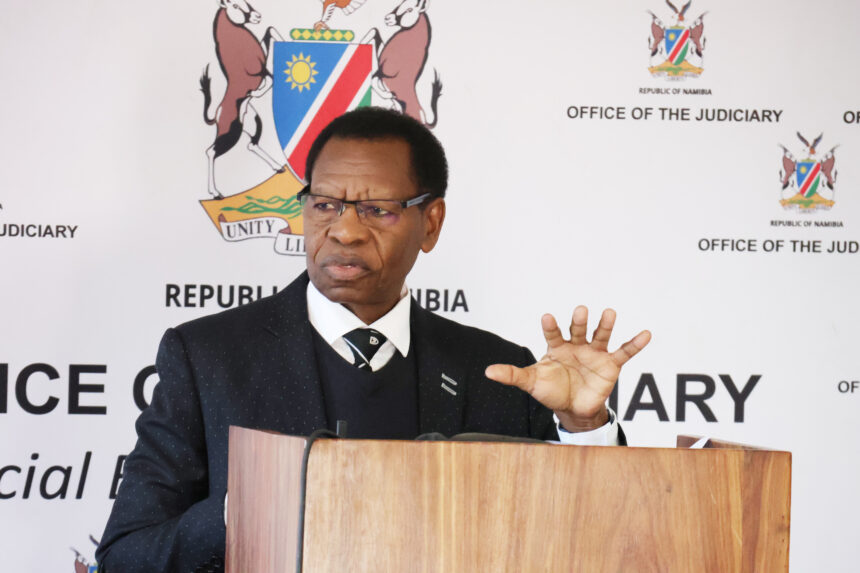Mulisa Simiyasa
OTJIWARONGO – Chief Justice (CJ) Peter Shivute has called on officials attending a weeklong strategic plan workshop at Otjiwarongo to generate a six-year strategic plan centred around accessible justice for everyone.
A total of 45 judiciary officials from across Namibia are attending the workshop, which commenced on Monday.
Shivute on Tuesday said his office functions within a broader public sector framework.
It is, therefore, an absolute must for it to contribute towards good governance, institutional performance and access to justice.
He said the strategic planning workshop should reflect on the institutional progress, assess present landscapes and define the future path of the Judiciary.
The workshop is an opportunity for a critical assessment of the institutional mandate and refinement of strategic direction, including the vision, mission and core values of the Judiciary.
“It is essential that during this workshop we reflect honestly on our past performance and celebrate the goals we have achieved, but also candidly examine where we have fallen short,” he said.
The CJ reminded the participants that the Judiciary is one of the three organs of the State, mandated to safeguard the rule of law, while aiming for fair, efficient and independent administration of justice.
He urged that, in crafting the next six-year strategy, it is imperative to remain anchored in the vision of the office, aiming to make it the world-class leader in judicial excellence while being supported by values of judicial independence, service excellence and public confidence.
Shivute noted the Judiciary’s independence. He said it relates to institutional mechanisms, impartiality and autonomy, while service excellence is directed at cultivating high performance and public confidence in ensuring the judiciary is accessible, transparent and trusted by the public.
On the modernisation of court systems, Shivute stressed the need for the final strategic plan to carry aspects of digitalisation and implementation of the Judicial Training Institution’s dream.
“The Chief Justice shall supervise the Judiciary, exercise responsibility over the Judiciary and monitor the norms and standards for the exercise of the judicial functions of all courts,” he said.
The workshop ends on Friday. -Nampa



